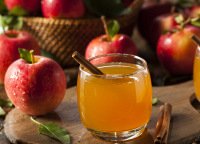Asparagus is one of the top twenty nutrient dense foods listed on the CDC website. The list includes the fruits and vegetables that give more nutrition per hundred calories.
Top 5 Benefits of Eating Asparagus
1. A Powerhouse of nutrients
Asparagus is high in Vitamin K, B vitamins like folate, B1, and B2. It is rich in minerals like selenium and copper, plus provides Vitamins C and E.
It's also a good source of fiber, phosphorus, potassium, protein, iron, and zinc.
It's most recommended during pregnancy due to its high folate, magnesium, and calcium.
It provides 22 of the most required nutrients which makes it a nutrient-dense veggie.
2. Packed with antioxidants 
Researchers have identified over 100 compounds in asparagus.
TweetGlutathione and rutin are among the top powerful antioxidants in them. It's worth noting that it is rich in Vitamin E and C – two spotlight antioxidants.
Besides, the selenium plays a key role in the activity of enzymes in the body that block free radical damage.
3. Anti-inflammatory
It offers a unique combination of anti-inflammatory nutrients. Along with antioxidants, these nutrients help reduce the risk of type 2 diabetes.
Saponin in asparagus is a potent anti-inflammatory agent.
4. Cancer fighter
Asparagus is rich in glutathione. It's an antioxidant and a detoxifying agent which cuts cancer risk, carcinogens and boosts the immune system.
Research shows that asparanin A, a nutrient in asparagus alter immune system signaling routes. This plays a key role in preventing cancer- related processes.
5. Excellent prebiotic
Asparagus is rich in inulin, a nutrient not digested but passes through the tract. It reaches the large intestine where the healthy gut bacteria feed on them and multiply in number.
The presence of soluble and insoluble fiber improve digestive health. Fiber stabilizes blood sugar, lowers the risk of colon cancer and improves good bacteria.
Quick Facts about Asparagus
- Asparagus cultivation began in Greece and it is around 2500 years old.

- It has no fat and is high in nutrients. A cup gives less than 30 calories.
- Great source of folate and helps with healthy pregnancy.
- There are two varieties – white and green asparagus, Green is more nutritious.
- Asparagus may cause allergy to those sensitive to onions and leek.
- Eating asparagus leads to strange urine odor, this is safe.
How to Choose & Use?
Choose stronger spears that show tight heads. A simple way to test the freshness is to check if it snaps when bent. To cook prep the asparagus by trimming the bottom ends first. Wash the spears well before cooking them as they tend to have more dirt.
Thin asparagus does not need peeling. Those with thick stems need peeling because the stems are usually tough and stringy. You can remove the tough outer skin of the bottom part of the stem with a peeler.
Asparagus provides exceptional nourishment to the body. Enjoy it in your salads, pasta, and omelets for a quick boost of protein and nutrients. Add asparagus to your weekly meal plan, it's a tasteful way to achieve your daily greens intake.
Yours in health and happiness,
Danette
P.S. Please help spread some love for amazing asparagus but sharing this article and I invite your comments below. Is asparagus one of your favorites?






